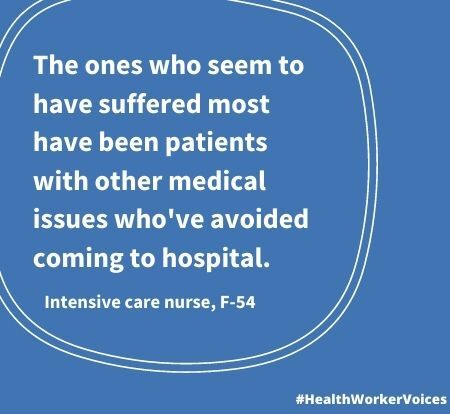Navigating Non-COVID 19 Health Care During The Pandemic
If you have a story about your own experience with healthcare during the pandemic, share it with us here.
Emergent Care and Elective Procedures
Elective surgeries and emergency care of non COVID-19 related conditions were difficult to manage in the early stages of the pandemic. As the Surgeon General urged medical care practitioners to delay elective procedures to concentrate on COVID-19 treatment, patients stayed home for fear of catching the virus.
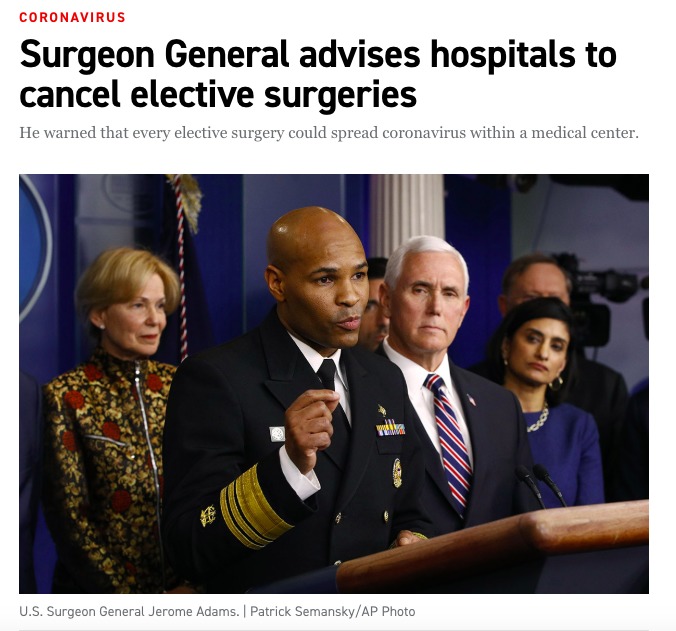
U.S. Surgeon General advises all hospitals to cancel elective surgeries
In March of 2020, U.S. Surgeon General Jerome Adams urged hospitals to cease elective procedures to concentrate on COVID-19 care.
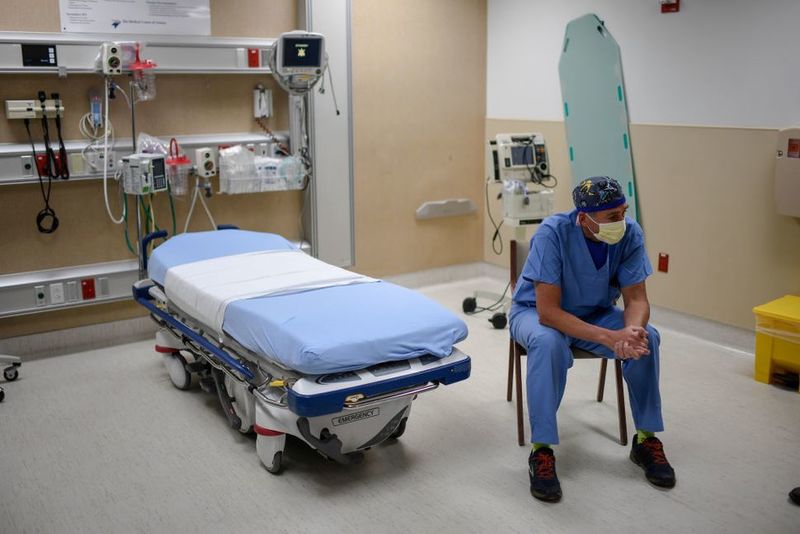
Not So Emergency Rooms
Emergency Rooms around the country, such as this one in West Virginia, were empty. People feared catching the virus and delayed care even in life threatening situations.
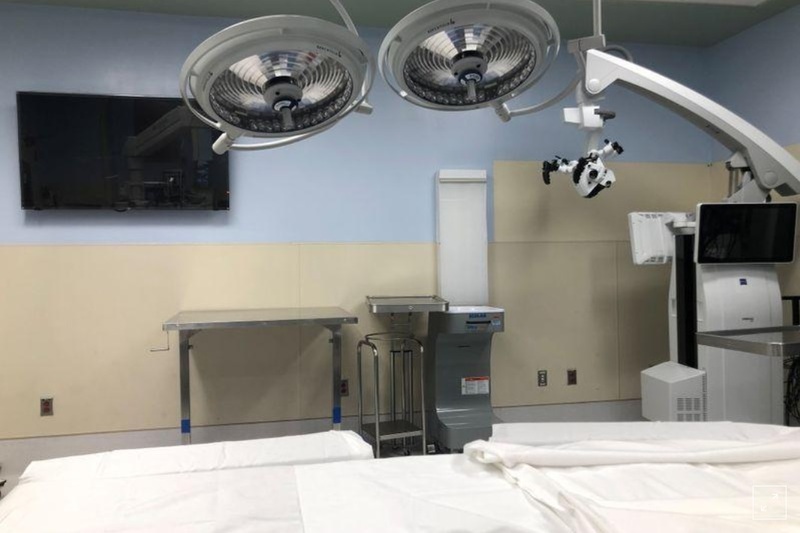
Hard Times for Hospitals Too
For many hospitals, especially in rural areas, elective procedures and routine care are how they stay financially stable.
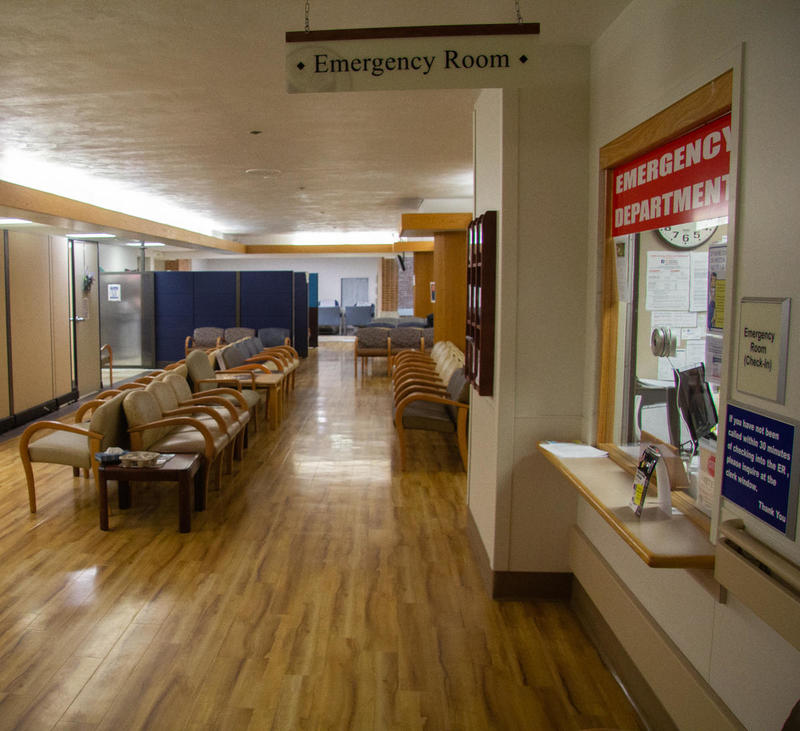
Vacant Waiting Rooms
This Veteran's Affairs Hospital waiting room, also in West Virginia, stands empty at the begininning of the pandemic because people opted to stay home.
Dire Diagnoses and Essential Care
For many people facing a dagnosis of cancer, chronic conditions, or terminal illness, the COVID-19 pandemic created the additional fear that either care would be unavailable or routine medical appointments might expose them to COVID-19. In some cases regular care was only available via telehealth and therefore not accessible to everyone.
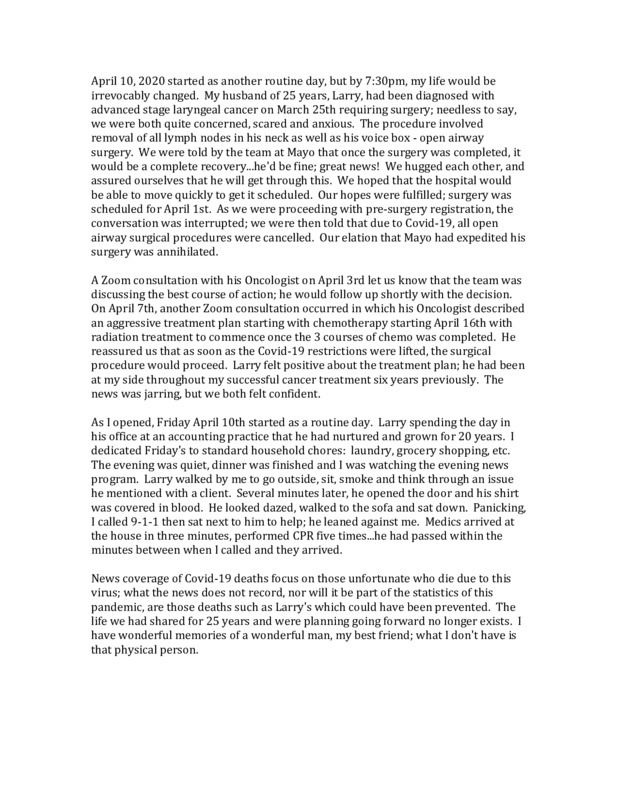
Covid-19 Collateral Death
In this submission, a man's life-saving throat cancer surgery is delayed and then canceled due to Covid - 19 restrictions.
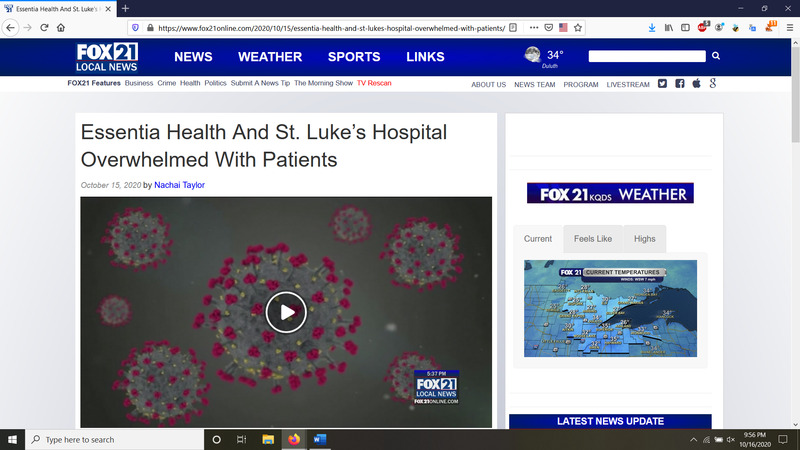
The Consequences of Skipping Doctor Appointments
St. Luke's hospital in Minnesota reached capacity proportions as patients who delayed routine care of non-COVID conditions saw their health worsen.
Hospitals and I.C.U Bed Shortages
Many hospitals faced concerns over limited capacities of Intensive Care Unit beds for both COVID-19 patients and those who needed other types of life saving care. Stories from around the country of full or near capacity I.C.U's reached crises proportions around December of 2020.
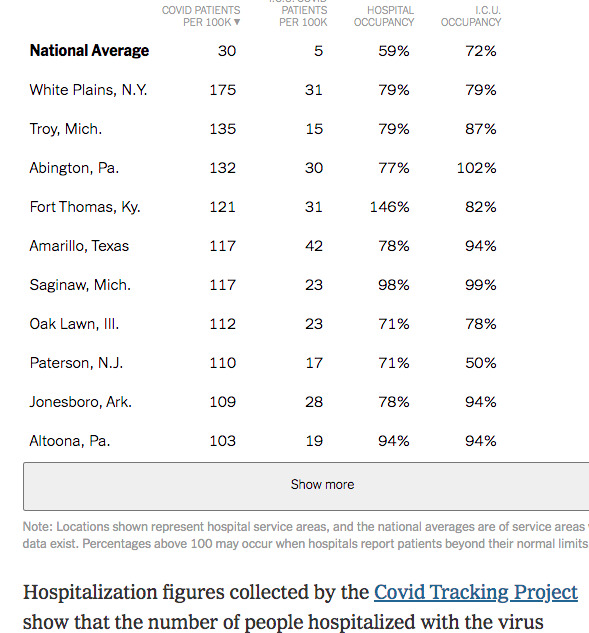
I.C.U. Beds Near Full Capacity Across the United States
From this NYT article: "More than a third of Americans live in areas where hospitals are running critically short of intensive care beds, federal data show, revealing a newly detailed picture of the nation’s hospital crisis during the deadliest week of the Covid-19 epidemic."
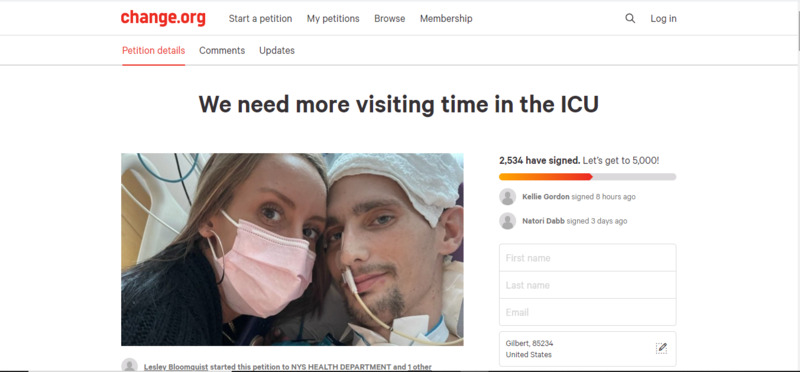
ICU Change.org Petition during COVID
As I.C.U beds filled up across the country, rules for visitation fluctuated with frequency. One woman's change.org petition sought to change those rules for loved ones.
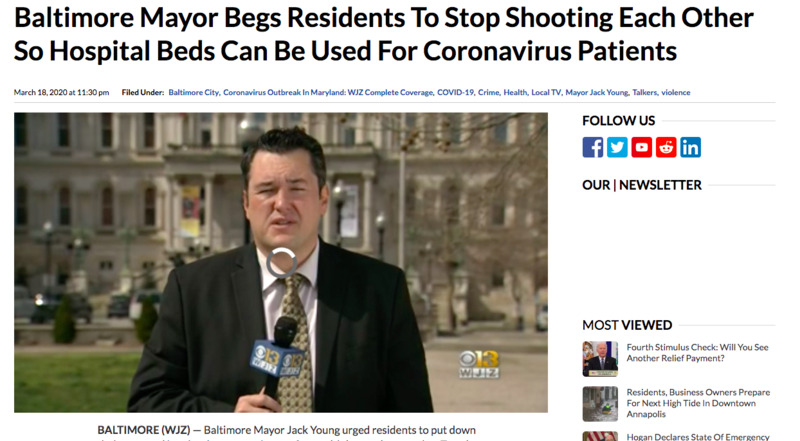
Hospital Beds in the City
In Baltimore, residents were urged to quell rampant gun violence to avoid already overloaded hospitals. With I.C.U beds at capacity, even emergencies like gunshots had to wait for critical and immediate treatment
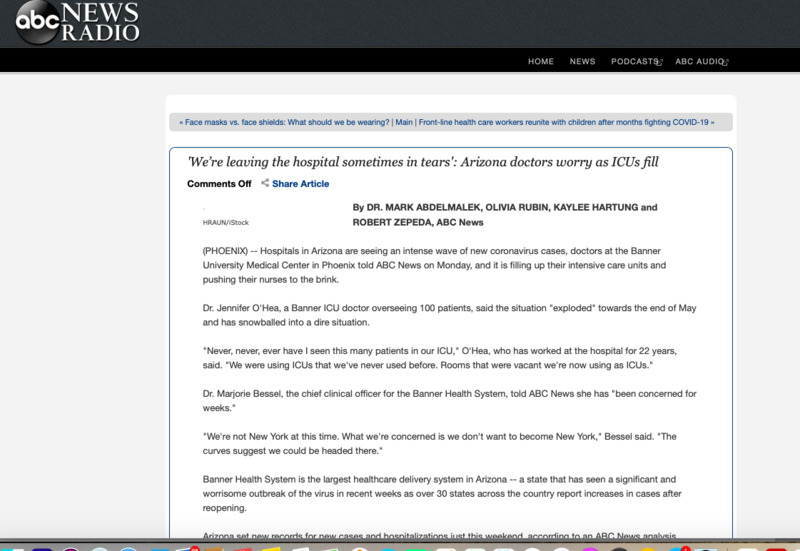
"We're leaving the hospital sometimes in tears": Arizona doctors worry as ICUs fill
Healthcare workers express their own fears as Intensive Care Units start to fill up throughout the state of Arizona.
Pregnancy During the Pandemic
Though stressful in general, pregnancy is often a time when parents are looking forward to their child's birth with happiness and joy. During the pandemic, fears of contracting COVID-19, uncertainty about how the vaccine might effect unborn babies, and the strict protocols withing hospitals were just some of the difficult scenarios facing parents awaiting the birth of a new baby.
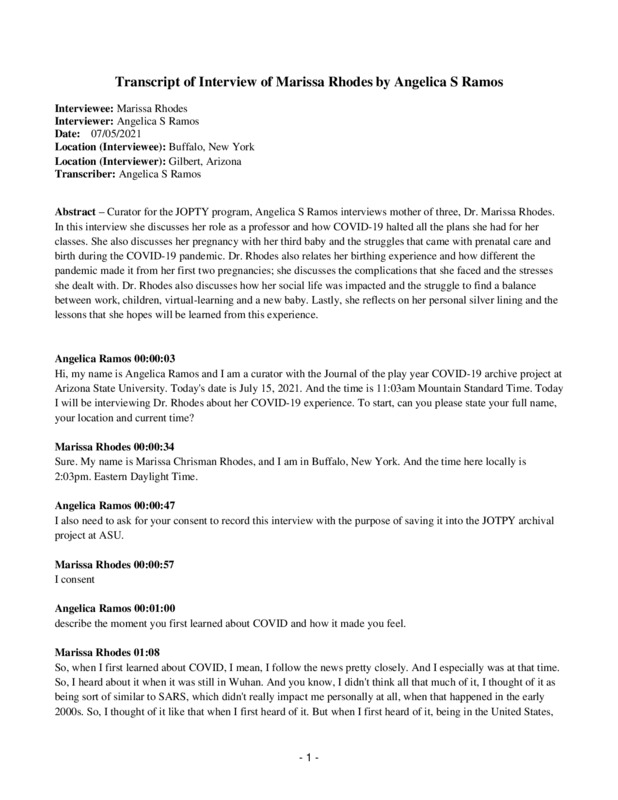
Dr. Marissa Rhodes, Oral History, July 15, 2021
Dr. Marissa Rhodes, professor and leader in the Journal of the Plague Year project, tells her story of her third pregnancy, childbirth, and handling complications and hospitalization during the COVID-19 pandemic.
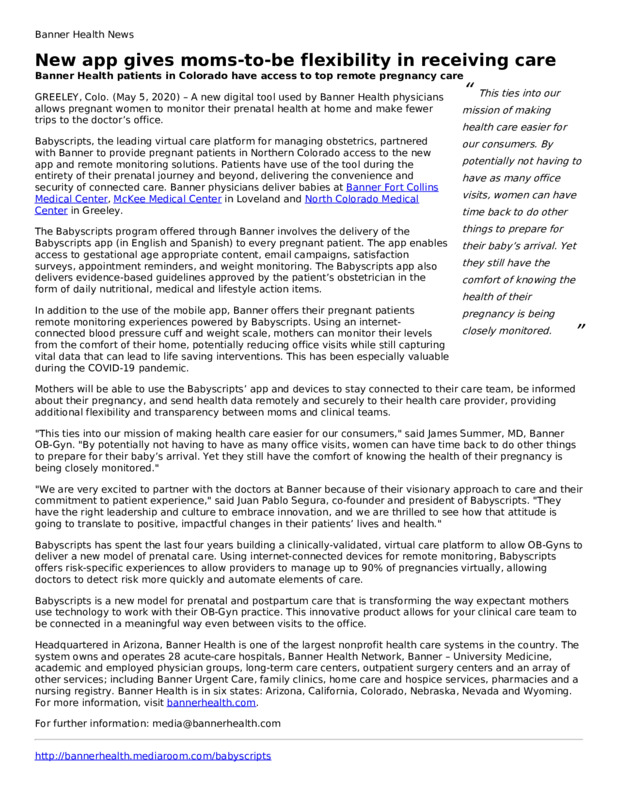
New app gives moms-to-be flexibility in receiving care
In an attempt to adapt to both strict social distancing and to ease the fears of moms to be, some institutions got creative with apps like "Babyscripts" created by Banner Health.
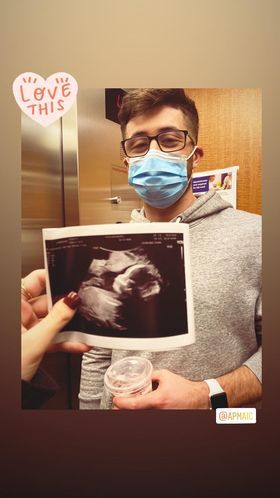
Pregnant in a Pandemic
A couple shows off their first ultrsound of a baby girl and describes frustrations with visitor restrictions and changing safety protocols during neonatal care in a pandemic.
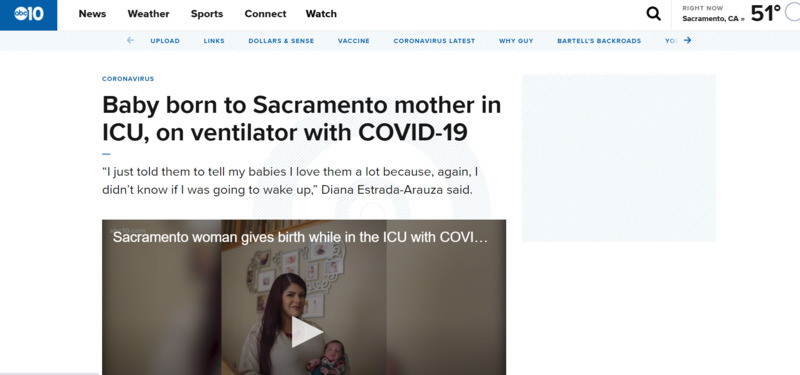
Baby born to Sacramento mother in ICU, on ventilator with COVID-19
In this article, a woman ill with COVID-19 gives birth to her baby two months early and while on a ventilator.

